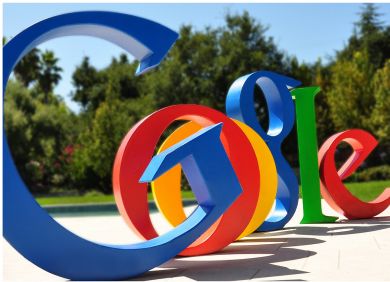Google FTC Decision Prompts Whistleblower Probe

The constant leaks during the FTC probe of Google has prompted political scrutiny by an angry congressman
Issa’s letter to the FTC is not a complete surprise in light of how things have changed since the 11 September, 2001, attacks on America in regard to national security, the press and news leaks, said Policinski.
“Clearly what we are seeing now is a renewed effort for government to police itself, with some truly draconian penalties” being faced by federal whistleblowers, such as a possible loss of federal pensions and increased criminal penalties, to try to stop such news leaks, he said.
“In the current climate, I don’t think this is a request just for show,” said Policinski. “This request is part of a pattern of really seriously trying to prosecute these folks.”
Could such an effort ultimately be successful and could the alleged leakers ever be caught and prosecuted in connection with the Google probe?
Google Investigation
“First, they’d have to identify the leaker and if the reporter or reporters don’t identify them it makes it hard,” he said. “With electronic communications, however, it may be easier to track this information than it was in the past. In this climate, there’s an increased willingness to pursue people who leak information. It was perhaps more show in the past.”
 Among the key parts of the FTC agreement with Google is that the search company voluntarily will end some past business practices that could stifle competition in the markets for popular devices such as smartphones, tablets and gaming consoles, as well as the market for online search advertising, according to the agency. Under a binding settlement with the FTC, Google will allow competitors access “on fair, reasonable, and non-discriminatory terms to patents on critical standardized technologies needed to make popular devices such as smartphones, laptop and tablet computers, and gaming consoles,” the FTC reported.
Among the key parts of the FTC agreement with Google is that the search company voluntarily will end some past business practices that could stifle competition in the markets for popular devices such as smartphones, tablets and gaming consoles, as well as the market for online search advertising, according to the agency. Under a binding settlement with the FTC, Google will allow competitors access “on fair, reasonable, and non-discriminatory terms to patents on critical standardized technologies needed to make popular devices such as smartphones, laptop and tablet computers, and gaming consoles,” the FTC reported.
As part of that agreement, Google will not seek court injunctions to block competitors from using Google-owned patents that are essential to key technologies used in products developed and sold by competitors, according to the FTC. Many of those patents came from the company’s acquisition of Motorola Mobility in May 2012 for more than $12 billion (£7.4bn), which included a large patent portfolio for technologies related to mobile and other consumer and business devices.
Beyond those steps, however, Google escaped FTC enforcement scenarios when it came to one of the biggest parts of the agency’s 19-month-long investigation into the company’s conduct – the allegations by competitors that the company had manipulated its search algorithms to harm vertical Websites and unfairly promote its competing vertical properties.
Now Google will have to see what happens in Europe with similar antitrust cases against the company in the European Union, where harsher consequences and actions are being considered.
Google was first notified by the FTC of a “formal review” of its business practices in June 2011 after similar reviews began in Europe. At that time, the European Commission launched an investigation into the company’s search practices after vertical search engines such as Foundem, eJustice.fr and Microsoft’s Ciao complained the company favoured its Web services in search results on Google.com over theirs. They argued that this put them at a significant competitive disadvantage in the market.
The initial FTC review in 2011 began after the agency heard complaints from Microsoft, Expedia, TripAdvisor, Yelp and other Websites that Google promotes its Web services above those of competitors.
Google denied all such allegations at that time, noting that its search algorithms analyse Website quality and popularity based on links for placement as part of its PageRank system.
In July, Google reached a record $22.5 million (£14m) settlement with the FTC to resolve charges that Google bypassed Apple Safari browser privacy settings that blocked cookies for their users. The settlement was criticised by the Competitive Enterprise Institute, an industry group, as “a dangerously overbroad precedent that will chill Internet innovation and hurt online startups,” the Institute said in a statement at that time.
Are you a Google expert? Take our quiz.
Originally published on eWeek.